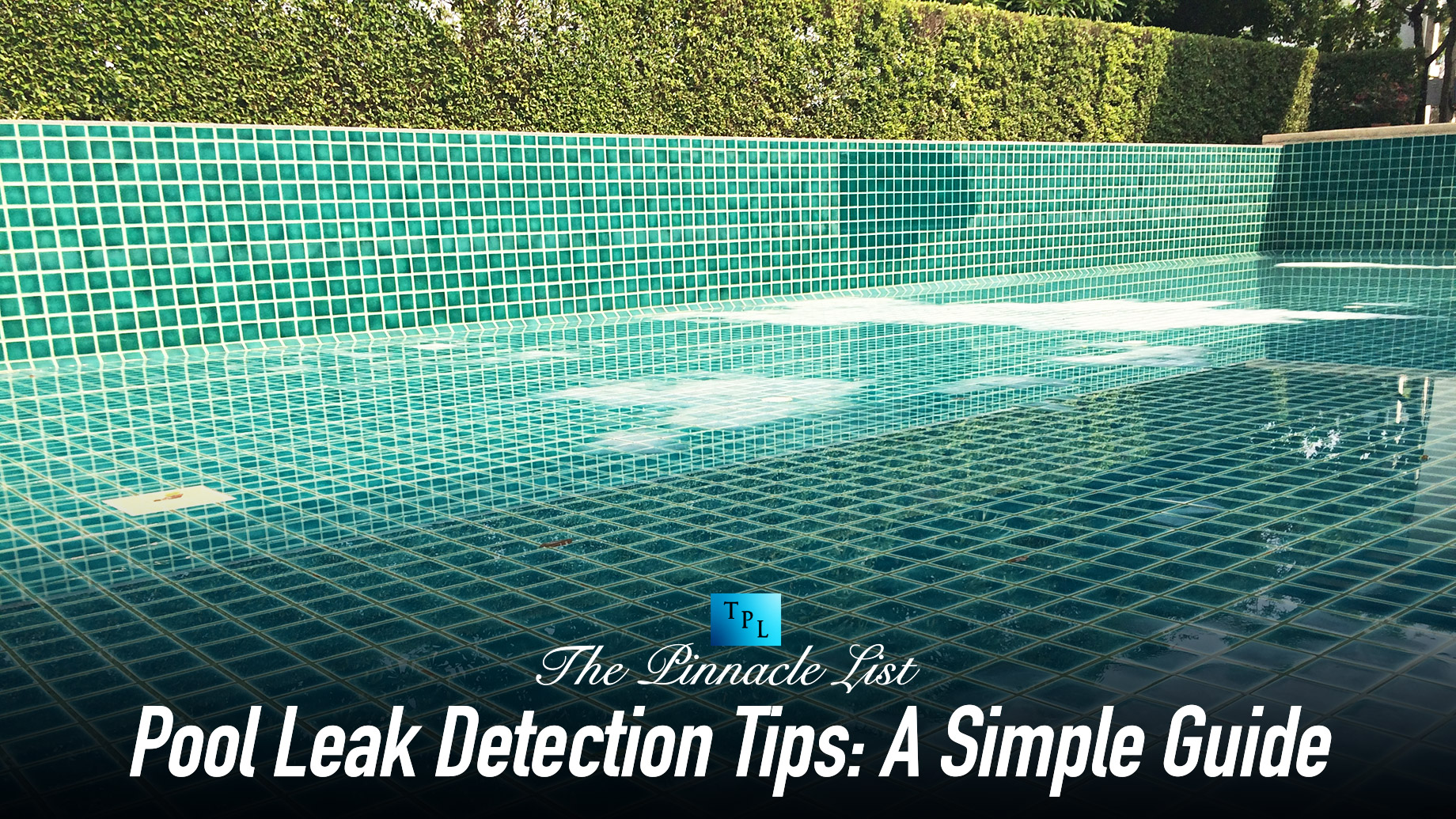
Having a swimming pool is a great way to enjoy time with family and friends. However, dealing with a pool leak can quickly turn that enjoyment into frustration. Luckily, pool leak detection doesn’t have to be complicated. If you’re noticing unexpected water loss or wet spots around your pool, it might be time to look into leak detection methods. Here are some easy swimming pool leak detection tips to help you identify leaks in your pool.
1. Keep an Eye on Water Levels
One of the first signs of a pool leak is a drop in water level. It’s normal for water to evaporate, especially during hot weather, but if you’re topping off the pool more than usual, it could be a sign of a leak. Try marking the water level with tape and checking back in 24 hours to see if there’s a significant change.
2. Perform the Bucket Test
The bucket test is a simple way to check if your pool is leaking or if water loss is just due to evaporation. Here’s how to do it:
- Fill a bucket with pool water and place it on the pool steps.
- Mark the water level inside the bucket and the pool water level outside the bucket.
- After 24 hours, check the levels. If the pool water level has dropped more than the bucket’s, you likely have a leak.
3. Inspect the Pool Equipment
Leaks often occur in the pool’s plumbing, filter, pump, or heater. Examine the equipment closely, especially around joints and connections. Look for any signs of moisture, rust, or corrosion, which can indicate a slow leak.
4. Check the Pool Liner
If your pool has a vinyl liner, small tears or holes can lead to leaks. Carefully inspect the liner for any visible damage. You can also use food coloring to help locate the leak. Add a few drops of food coloring near any suspected areas, and if it’s being sucked in, you’ve found your leak.
5. Test the Pool Lights
Leaks can sometimes occur around the pool lights. Water can seep in through the light fittings or electrical conduits. Check for any moisture near the light fixtures or around the pool’s edges where the lights are installed.
6. Contact a Local Professional Leak Detection Service
If you’re unable to find the source of the leak on your own, it might be time to call in the experts. To save costs on callouts and travel, it is advisable to contact a leak detection specialist close to you. For example, if you live in Silver Lakes, searching for pool leak detection Silver Lakes should help you find local companies that have the tools and experience needed to find and repair leaks quickly.
7. Use Leak Detection Dye
If you suspect a leak but can’t pinpoint it, leak detection dye can help. This special dye is designed to be used in pools and will flow towards the source of the leak. By adding the dye near suspected areas, you can track where it’s going, giving you a clear idea of where the leak is located.
8. Be Aware of Pool Cracks
Cracks in the pool structure, whether it’s concrete or fiberglass, can also lead to water loss. Even minor cracks can allow water to escape. Examine the pool’s surface carefully, and don’t hesitate to call a professional if you find any cracks that seem serious.
Why Fixing Pool Leaks is Important
Ignoring a pool leak isn’t just a nuisance—it can lead to more serious problems over time. A small leak can cause damage to the pool structure, increase water bills, and waste a lot of water. Fixing leaks promptly can save you money and prevent more significant repairs down the line.
Final Thoughts
Detecting a pool leak may sound daunting, but with the right steps, you can catch and fix the issue before it becomes a bigger problem. Whether you’re using simple tests like the bucket method or consulting professionals, staying vigilant about pool maintenance will keep your pool in top shape.
FAQs
- How can I tell if my pool is leaking or just losing water through evaporation?
- Use the bucket test to compare water loss due to evaporation versus leakage. A greater water level drop in the pool compared to the bucket indicates a leak.
- How often should I check for leaks in my pool?
- It’s a good idea to inspect your pool for leaks at the beginning and end of the swimming season. Also, check if you notice any sudden water level drops.
- Can a small pool leak turn into a bigger problem?
- Yes, even a small leak can lead to structural damage or increased water bills over time, so it’s essential to address leaks as soon as you notice them.
- Can pool leaks occur in the plumbing system?
- Yes, many pool leaks happen in the plumbing system. Be sure to check all pipes, pumps, and filters for signs of moisture or corrosion.
- Is it possible to fix a pool leak on my own?
- Some leaks can be fixed with DIY methods like using pool putty or patch kits, but more complex leaks often require professional help to ensure proper repair.